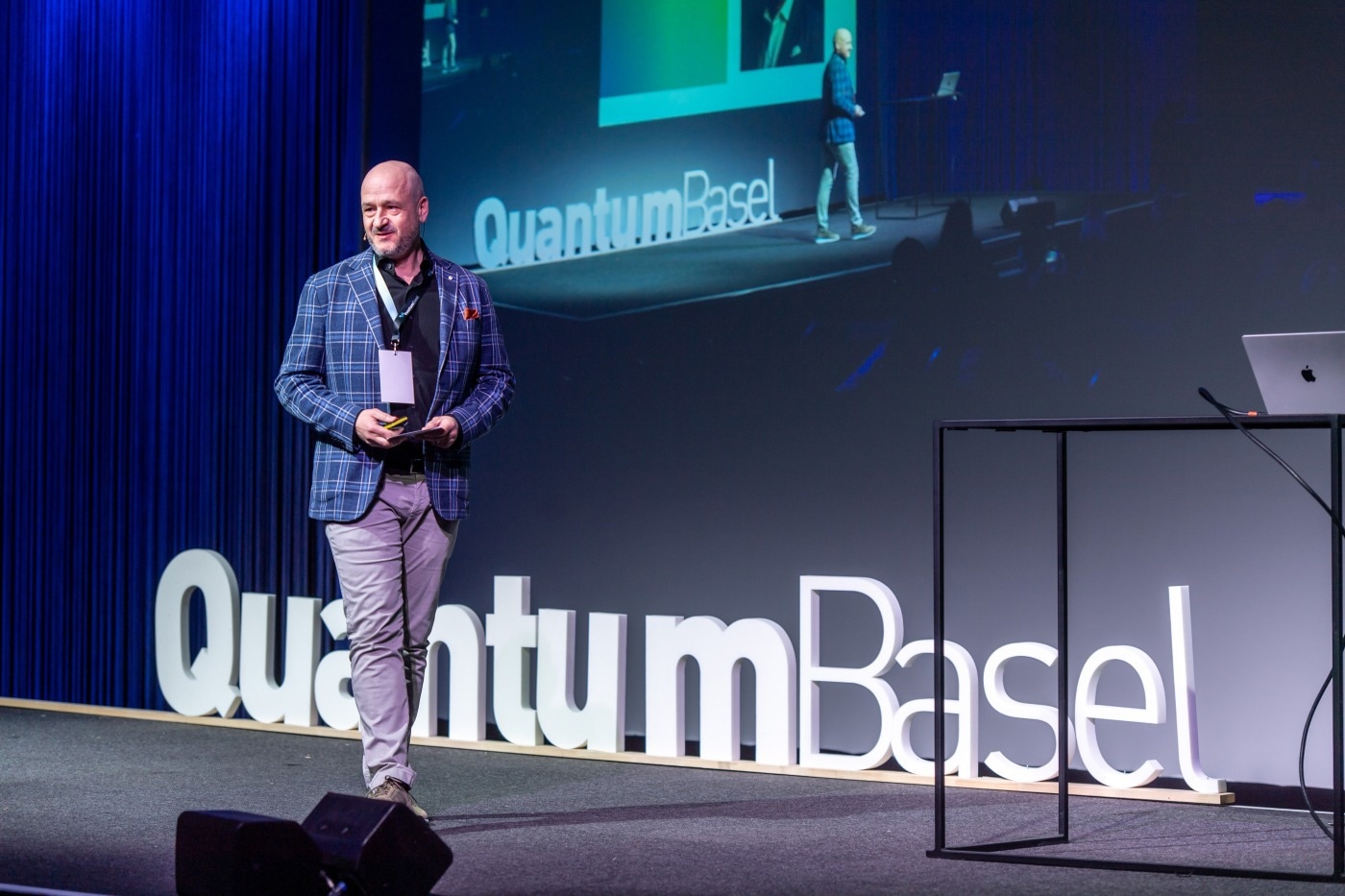In uptownBasel, 30 quantum technology luminaries ensured a full house and shared exciting new insights at the first US-Switzerland Quantum Symposium, from March 27 to 28, 2023. The first day of the symposium saw a successful meeting of the research and industry communities. Together with its partners, QuantumBasel decided to establish the Quantum Symposium as an annual international conference, and plans to expand cooperation to seven countries, including the USA, Japan, Israel and the Netherlands.
 Damir Bogdan, CEO of uptownBasel Infinity and local host, welcomes around 300 guests to the first US-Switzerland Quantum Symposium. Image Credit: QuantumBasel
Damir Bogdan, CEO of uptownBasel Infinity and local host, welcomes around 300 guests to the first US-Switzerland Quantum Symposium. Image Credit: QuantumBasel
"Quantum technology is one of the most powerful innovation drivers. Good international cooperation is of great interest to science and industry,” says Damir Bogdan, the host of the Quantum Symposium and CEO of uptownBasel Infinity. In collaboration with Prof. Daniel Loss of the University of Basel and Prof. David Awschalom of the University of Chicago, QuantumBasel brought together researchers from other prestigious institutions such as Princeton University, Harvard University, ETH Zurich and EPFL Lausanne to promote the progress of quantum technology along with industry representatives over two intense days. A total of around 300 Swiss and international guests participated in the Quantum Symposium.
Research and Industry Pursue Common Objectives
The strengthening of cooperation between the two countries in this relevant technology was one of the most important goals of the Quantum Symposium. Bringing research and industry together at this level is unique in this respect, and has undoubtedly contributed to the success of the US-Switzerland Quantum Symposium. "Those of us involved in basic research and exponents from industry don't always speak the same language, but we are all pursuing the same goals. Quantum computing is going to happen; there are really no alternatives, and it'll help us greatly to deal with major challenges efficiently," says Daniel Loss, Professor of Physics and Chair of the event.
Collaboration Ensures a Technological Lead
Quantum science is considered to be a primary area of research in the USA and Switzerland. Both countries agreed to pursue joint research in the areas of quantum information science and technology to expand their existing scientific and technological lead as rapidly as possible at an international level. "Swiss researchers need this exchange with other scientists. The opportunity to discuss matters with colleagues in the USA and tackle projects together was, as far as I'm concerned, one of the main motivating factors for the Quantum Symposium," explains Prof. Loss.
The Next Quantum Symposium Will Be Global
QuantumBasel is pleased that its commitment has enabled this exchange as well as further strengthening the role of Switzerland as a research location. "We will build on the success of this year's Quantum Symposium and expand our commitment," announced Damir Bogdan at the media conference. "We are planning a second international Quantum Symposium. We are already in contact with scientists and technology partners from a further seven countries at the cutting edge of quantum technology, and we have the green light to pursue a cooperative effort."
Online media conference | US-Switzerland Quantum Symposium
Video Credit: QuantumBasel